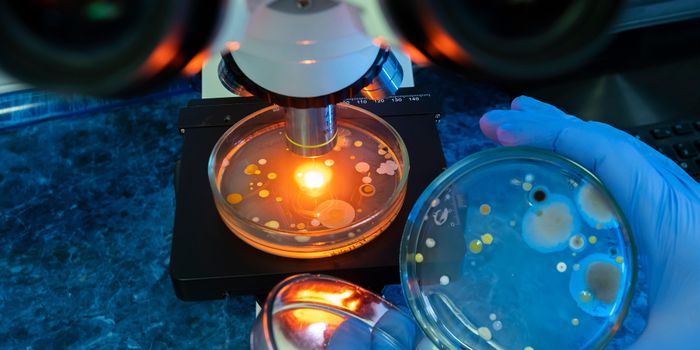The Stem of Cancer
Cancer treatments, like chemotherapy, can be very aggressive, eliminating and reducing most of the cancerous cells. However, some cancer cells can remain behind. Often it is these left behind diseased cells that can allow the metastasis and regrowth of tumors. What is it about these cells that will enable the re-initiation of cancer growth?
Genes that are known to be required for stem cells to function as healthy stem cells may hold the answer. A team of researchers at University of Colorado Cancer Center have published their work in the Cancer Research journal. Their study sheds light on a population of cancer cells marked by increases in surface proteins called major histocompatibility complex (MHC) class 1 and CDK1.
In particular, the cancer cells with high levels of MHC-1 and CDK1 reveal an essential role in the survival and continuance of disease such as melanoma, pancreatic and colon cancers. MHC class 1 molecules are an integral part of the immune system. They sit on the surface of cells displaying small portions of foreign protein to the extracellular environment. In other words, they are sharing to the immune system the intracellular derived imposters or mutations, so that an immune response may mount a response. Interestingly, most cancer cells are known to downregulate MHC class 1 molecules do not have the mechanism present and thereby avoid immune attacks.
"Probably, these cells have another way to evade the immune system," says Mayumi Fujita, MD, Ph.D., an investigator at CU Cancer Center and professor in the CU School of Medicine Departments of Dermatology and Immunology/Microbiology.
CDK1 is involved in the regulation of cell replication. Without it, the cell cannot undergo this process. When functioning correctly, the cell can undergo replication successfully.
This study analyzed human melanoma, colon, and pancreatic cancer tissues grafted to mouse models to identify the enrichment of tumor-initiating cells in upregulated MHC class 1 cells with CDK1 as the controller of the cell cycle. The team found that overexpression of CDK1 did not alter the cancer forming and initiating ability. When blocking CDK1 via pharmacological agents, the team observed a reduction in the cancer cell spreading and initiation abilities.
The research team then asked the question, “Why would CDK1 control not just the cell cycle, but also stem-ness?” When looking at the proteome, the study revealed an interaction between CDK1 and the pluripotent stem cell transcription factor Sox2. By downregulating the CDK1 gene, the scientists discovered a previously unrecognized role for CDK1 in regulating tumor-initiating capacity in melanoma. In short, the interactions between high levels of CDK1 and the Sox2 gene indicate the cells ability to act in a stem-like manner.
The high levels of MHC-1, CDK1 and their interaction with Sox2 proved to be a standard feature with all three diseases studied, melanoma, colon, and pancreatic cancer. These findings help to highlight new areas of potential treatment strategy by way of interrupting the CDK1 function and its protein-protein interactions.
In the future, the team indicates interest in defining more details surrounding the mechanism of Sox2 and its relationship with CDK1. The end goal is to unveil, if any, essential links that can be the focus of new medicines that might interfere with the pathway.









